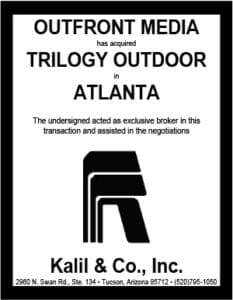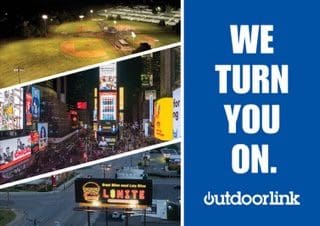
Yesterday, I reported on Part 1 of the Tennessee Billboard Law Fix, under which Governor Bill Lee signed into law an amendment to Tennessee’s Highway Beautification Act, thereby “curing” the First Amendment defects found by the District and Circuit Courts in Thomas vs Bright. However, while the Tennessee Act is now constitutional and enforceable, affording local billboard operators long overdue certainty in regulation and permitting, the litigation remains pending, as the State appealed the lower courts’ rulings to the US Supreme Court. Several questions remain outstanding in the pending litigation, such as whether Thomas or other Tennessee billboard operators may recover refunds of the permit fees they paid under the Act, while it was still adjudged as unconstitutional. The disposition of the Thomas litigation may be predicted based on the similar legislative and litigation efforts in Texas.
In 2016, after the US Supreme Court’s 2015 decision in Reed vs Town of Gilbert, and before the 2017 Federal District Court opinion in Thomas vs Bright, the Texas Court of Appeals for the Third District rendered its opinion in Auspro vs Texas Department of Transportation. The Auspro Court held the Texas HBA content-based in its differentiation of on-premise and off-premise signs, just like the Federal trial and appellate courts held in Thomas. And, just like in Thomas, the Court in Auspro went on to hold that the Texas Act violated the First Amendment, and was therefore unconstitutional and effectively unenforceable. Finally, the State of Texas appealed the adverse decision to the Texas Supreme Court, just like the State of Tennessee appealed to the US Supreme Court.
While the appeal of the Auspro decision was pending before the Texas Supreme Court, the Texas Legislature during its 2018 session amended the Texas HBA. The new Texas Act eliminates the constitutionally defective definition of an “off-premise sign,” and replaces it with a content-neutral definition of a “commercial sign.” Very similar to the newly classified “outdoor advertising devise” under the amended Tennessee HBA, “commercial signs” in Texas are now distinguished by whether a fee is paid for the display of the message on the sign. Therefore, the HBAs in both Texas and now Tennessee are constitutional and enforceable, thereby returning certainty in regulation and permitting to billboard operators in these States.
After the legislative “fix” of the Texas HBA, the Texas Supreme Court took up the State’s appeal of the Auspro decision. The Court did so by (1) accepting jurisdiction of the petition for review, and deciding to review the lower court’s decision, (2) holding the recent amendment to the Texas Act to render the constitutional challenges of Auspro as moot, so that no substantive decision on the merits was warranted, and importantly, (3) vacating the Court of Appeals decision, meaning it has no precedential or enforceable effect. In other words, Auspro could no longer rely upon the favorable Court of Appeals decision as a basis for recovering the permit fees and attorneys fees he paid due to the State’s enforcement of the Act while it was adjudged unconstitutional. And, other Texas operators couldn’t use Auspro vs TxDOT as a precedent for their own recoveries either.
Based on this legislative and litigation experience in Texas, I predict a similar outcome in Tennessee. Specifically, like the Texas Supreme Court, the US Supreme Court exercises discretion is deciding whether to accept appellate jurisdiction and adjudicate an appeal. Both high courts are reluctant to select cases for substantive decision on the merits. Thus, I suspect that the US Supreme Court, like the Texas Supreme Court, will find the Tennessee Legislature’s efforts to render the Tennessee Act constitutional, and thereby cause Thomas’ First Amendment challenges to become moot. Now, whether the US Supreme Court will take the same next step that was undertaken by the Texas Supreme Court of vacating the lower court’s decision is less predictable. Specifically, the Supreme Court could follow Texas’ example by accepting the petition for writ of certiorari, rule Thomas’ constitutional challenges as moot without issuing a substantive decision on the merits, and then vacate the Federal District and Circuit Court opinions. Such judicial action would likely bar Thomas, and other Tennessee billboard operators, from recoveries of permit fees or other damages incurred due to enforcement of the Tennessee Act while it was adjudged unconstitutional, just like where Auspro and Texas operators find themselves after the Texas Supreme Court’s action. On the other hand, the US Supreme Court may simply refuse to accept jurisdiction and deny Tennessee’s petition for writ of certiorari, implicitly because the underlying dispute is moot and doesn’t warrant further judicial action. Under this scenario, Thomas and other billboard operators may still be able to cite the precedents in the lower courts’ decisions in Thomas vs Bright as a basis for further litigation for permit fee refunds from Tennessee.
Either way, importantly, the US Supreme Court will likely not write a substantive decision on the constitutionality of the Tennessee HBA, since that issue has been rendered moot by the Tennessee Legislature. Most in the out of home industry will welcome this result, as it also follows that the Supreme Court will be less inclined to examine the underlying Federal Highway Beautification Act. And, while the Texas and Tennessee Legislatures seem to have done a commendable job in redressing the constitutional concerns about their HBAs, not many in the industry harbor the same confidence that the US Congress would also do the right thing with the Federal Act in this politically charged atmosphere.
[wpforms id=”9787″]
Paid Advertisement

















